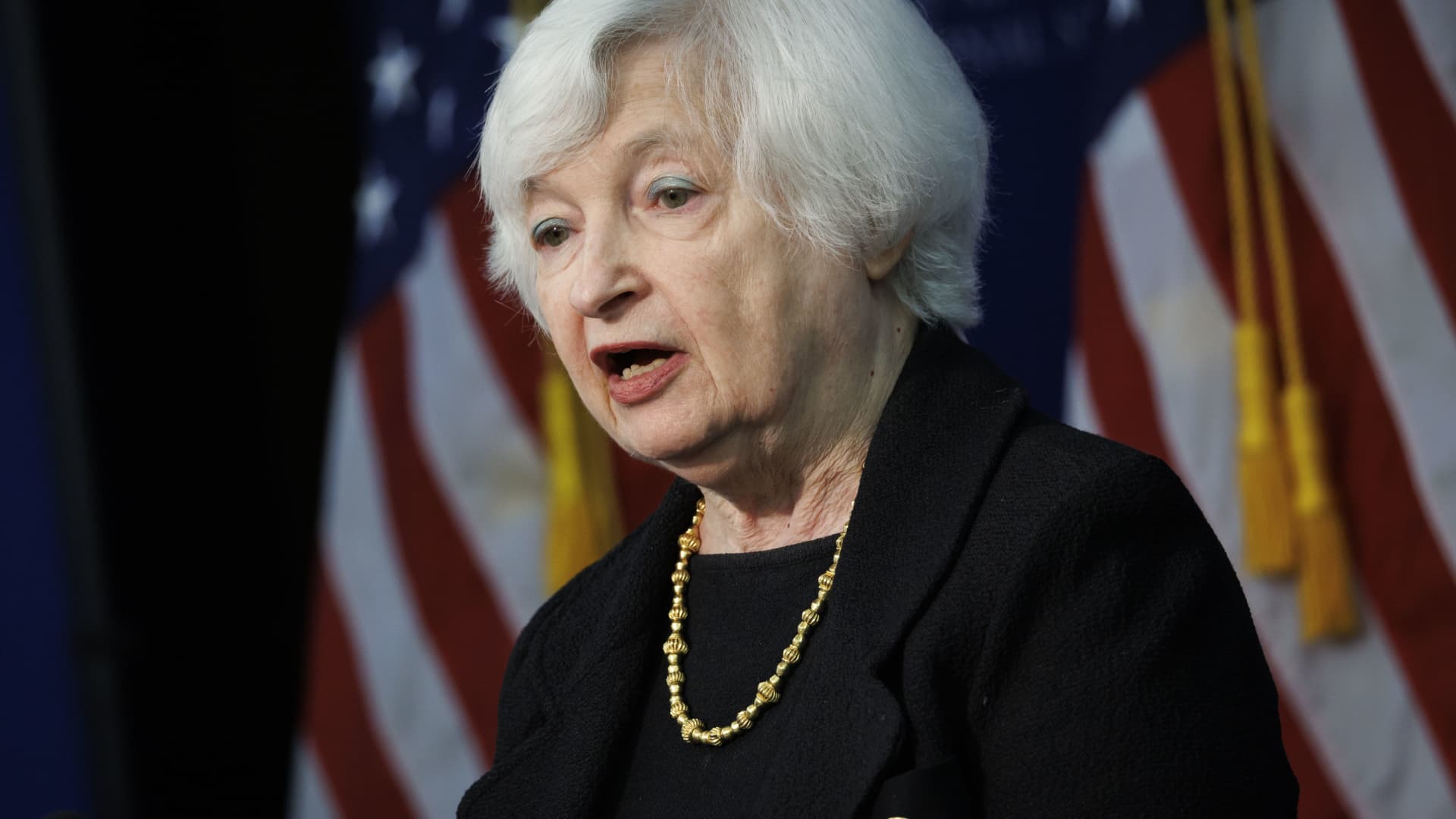WASHINGTON — The U.S. seeks healthy economic competition with China even as the country pursues intellectual property to gain an economic edge, Treasury Secretary Janet Yellen said Thursday.
Yellen stressed the importance of fairness between the U.S. and China, while outlining a three-tiered approach to strengthen a roughly $700 billion trade relationship, she said in remarks at the Johns Hopkins University’s School of Advanced International Studies on Thursday. Yellen also announced a planned visit to China “at the appropriate time.”
Her comments come as Washington, and the Republican-held House in particular, increase pressure on Beijing as part of a sustained U.S. backlash against China’s economic tactics.
China has pivoted away from market reforms “toward a more state-driven approach that has undercut its neighbors and countries across the world,” Yellen said. “This has come as China is striking a more confrontational posture toward the United States and our allies and partners – not only in the Indo-Pacific but also in Europe and other regions.”
The world’s two largest economies can only compete through impartial rulemaking, she said.
“There is a world in which, as companies in the U.S. and China challenge each other, our economies can grow, standards of living can rise, and new innovations can bear fruit,” Yellen said. “But this type of healthy competition is only sustainable if it is fair to both sides.”
The Treasury chief said the U.S. trades more with China than “with any countries other than Canada and Mexico.”
“American firms have extensive operations in China. Hundreds of Chinese firms are listed on our stock exchanges, which are part of the deepest and most liquid capital markets in the world,” Yellen said.
But she contended China has pursued market share for its domestic firms through illegal means and at the expense of foreign competitors.
“It has done so in traditional industrial sectors as well as emerging technologies,” Yellen said of the Chinese government’s efforts. “This strategy has been coupled with aggressive efforts to acquire new technological know-how and intellectual property – including through IP theft and other illicit means.”
The Biden administration’s three-pronged proposal to develop economic rapport with China emphasizes national security and human rights protections.
“We will clearly communicate to [China] our concerns about its behavior. And we will not hesitate to defend our vital interests,” Yellen said. “Even as our targeted actions may have economic impacts, they are motivated solely by our concerns about our security and values. Our goal is not to use these tools to gain competitive economic advantage.”
Safeguarding certain technologies from China’s military and security networks is “of vital national interest,” especially in light of China’s “no limit” partnership with Russia amid its continued invasion of Ukraine, Yellen said. Ukraine’s allies have watched closely whether China will offer military support to Moscow.
“We will not compromise on these concerns, even when they force trade-offs with our economic interests,” she said, adding that the Treasury Department and other agencies will employ their sanctions authorities to counter encroaching threats.
The agency issued a round of sanctions after a Chinese spycraft flew over parts of the U.S. in February, while the Commerce Department placed trading limits on five Chinese firms for allegedly trying to evade U.S. export controls on Russia.
Yellen vowed to partner with U.S. allies in countering China’s “unfair economic practices” while advancing “our vision for an open, fair, and rules-based global economic order.” She also called on Chinese President Xi Jinping to follow through on his promise to cooperate on global issues like climate change and debt distress.
“We call on China to follow through on its promise to work with us on these issues – not as a favor to us, but out of our joint duty and obligation to the world,” she said. “Tackling these issues together will also advance the national interests of both of our countries.”
The Chinese Embassy in Washington D.C. did not immediately respond to a request to comment.
Lawmakers have focused on the rivalry between the two powers during the ongoing debate over raising the $31.4 trillion debt ceiling. If the U.S. fails to do so, it could default on its debt for the first time this summer. Yellen and her colleagues have repeatedly warned about the catastrophic consequences of default, including economic damage and international apprehension about the full faith and credit of the United States.
On Wednesday, House Speaker Kevin McCarthy, R-Calif., promised that a GOP bill to temporarily raise the debt ceiling in exchange for spending cuts would also reduce U.S. dependence on China.





